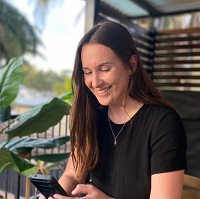On Track - Learning can be fun
In the third in our series of careers articles, UNE Career Practitioner Kate Pardy* reflects on how to get some fun out of professional development.
 In our working life, regardless of what we do, there is always a space to grow our professional skills and abilities. This comes in the form of professional development. For Career Practitioners like me to maintain our registration, for instance, we need to do 30 hours of professional development a year. The same goes for people in education, health, law, accounting, etc.
In our working life, regardless of what we do, there is always a space to grow our professional skills and abilities. This comes in the form of professional development. For Career Practitioners like me to maintain our registration, for instance, we need to do 30 hours of professional development a year. The same goes for people in education, health, law, accounting, etc.
While some individuals may not have to do professional development, their workplaces will consider it an important part of staff development. However, the term “professional development” can invoke a binary response: it can be considered an opportunity to grow skills and knowledge, or induce an eye roll and be seen simply as a tick-the-box exercise.
Why is the latter such a common response? Well, let’s be honest, unless we are doing something that truly interests us, professional development can sometimes be … a bit … boring.
But let's pause and flip the script, and instead ask ‘what might I enjoy learning?’ as a side benefit to developing professional skills. If you are looking at submitting your professional development plan or getting ready for next year, consider learning for fun.
The connection between what we need to learn and skills development can be broader than first thought. You might need stronger written communication and presentation skills, so why not think about creative writing and theatre studies? Now I'm not suggesting that you need to write the next proposal as a Jane Austin novel, but understanding the power of language and the right words to bring home your point can be very useful. The next presentation you give does not have to be a Shakespearean monologue, but such courses will help you to learn pacing, style and diction.
Alternatively, you may need to grow your skills in teamwork and managing people, because, try as you might, you struggle with certain people. How about exploring studies in sociology or psychology? Having an understanding and appreciation of different personalities and social groupings goes a long way to fostering better team relationships.
And what if you need to strengthen your skills in problem-solving, to think big and strategise for the company? You could look at studies in history, peace studies and/or political studies. Learning the significant moments in our history, how and why people made decisions, and what resulted can help you to develop important strategic skills. Playing out scenarios and understanding their consequences is a valuable way to obtain big-picture thinking skills.
Learning and growing your skillset and knowledge can be a fun or, at the very least, more enjoyable experience if you look a little differently at what you need to learn. There's also scope to tie it to your professional development learning and sweep it all up into a postgraduate award, where you combine professional development to your employer’s benefit, while also building your own academic credentials.
In UNE's Graduate Certificate in Professional Practice, for example, you can build a program of study that meets your needs. You can develop the tools needed to navigate the world of work, identify and articulate your professional persona, and come to understand yourself much better. The ultimate outcome - a professional portfolio that demonstrates who you are and what you can do - can be critical to your career development. But, hopefully, you will also have had some fun along the way. It might even open up exciting new career options.
* Kate Pardy is a member of the UNE team responsible for the Graduate Certificate and Graduate Diploma in Professional Practice - postgraduate courses that can be tailored to suit your individual career ambitions.

